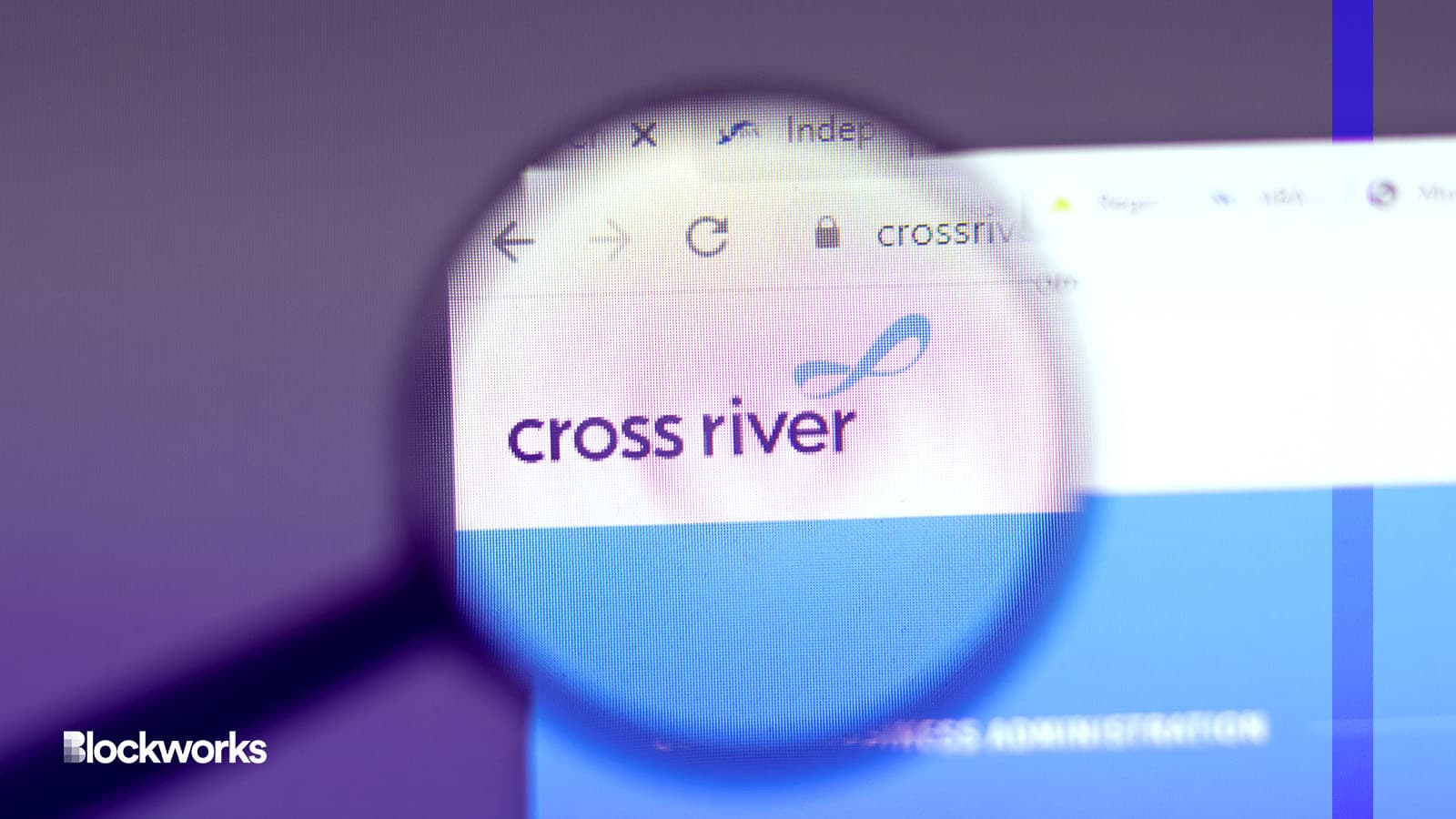Circle Banking Partner Ordered to Correct ‘Unsafe’ Practices
Cross River Bank was ordered to improve internal controls and eliminate unsafe practices

Postmodern Studio/Shutterstock, modified by Blockworks
The Federal Deposit Insurance Corporation requested Cross River Bank, currently one of the most visible pro-crypto banks, to take corrective action to eliminate unsafe banking practices and improve its supervision of internal controls and credit underwriting practices.
The agency revealed on April 28 that Cross River Bank entered into a consent agreement on March 8, indicating the bank’s acceptance to take rectifying actions.
However, Cross River did not accept nor deny violations cited in a 2021 report of examination.
“The FDIC considered the matter and determined, and the bank neither admits or [sic] denies, that it engaged in the unsafe or unsound banking practices related to its compliance with applicable fair lending laws and regulations,” the order said.
The order requests the bank to eliminate or correct unsound banking practices that were identified in the 2021 report, address deficiencies and weaknesses identified in future consumer compliance reports of examination.
It must also hire an independent third party to conduct a Fair Lending Resources study within 60 days of the order and submit a written summary to the Regional Director for review, taking into consideration the bank’s size, growth plans, number of credit products, third parties and merchants.
Cross River Bank provides banking services to a number of individuals, businesses and financial institutions. It’s also known for providing banking services, payment processing, digital wallets and lending services to a number of crypto-related businesses and platforms
The order was executed before stablecoin issuer Circle said it was moving from banking with collapsed Silicon Valley Bank to Cross River Bank.
“Trust, safety and 1:1 redeemability of all USDC in circulation is of paramount importance to Circle, even in the face of bank contagion affecting crypto markets,” CEO Jeremy Allaire said in a statement.
Just prior to the release of the FDIC’s consent order, Cross River Bank published a first-quarter update, which showed a 32% year-over-year increase in “fintech lending.”
It also warned that with increasing regulatory scrutiny on banks, especially those supporting fintechs, Cross River faces continuous regulatory examination.
“We view our compliance capability as a strategic advantage” the bank said.
Get the news in your inbox. Explore Blockworks newsletters:
- The Breakdown: Decoding crypto and the markets. Daily.
- 0xResearch: Alpha in your inbox. Think like an analyst.






